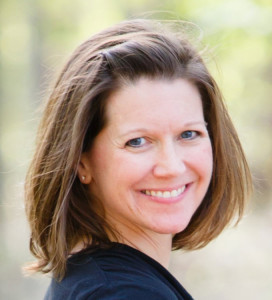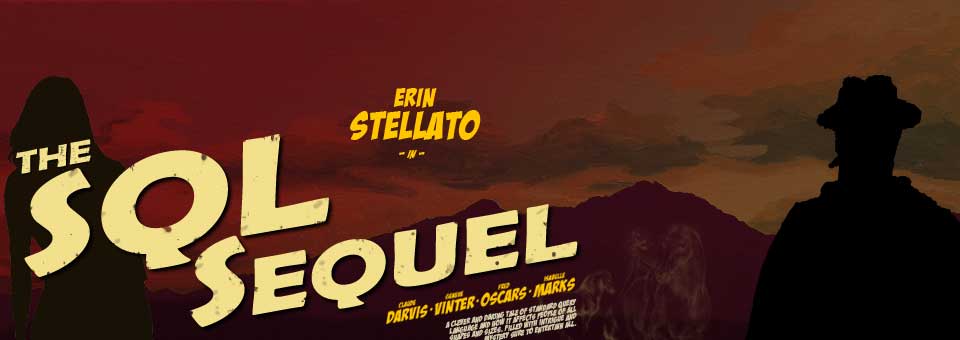I am a Principal Consultant at SQLskills.com. As a consultant I get to work with many different clients, and I enjoy learning how each one leverages SQL Server tools and functionality to accomplish their goals. I also blog on the SQLskills site and have several SQL Server courses on Pluralsight.
 I am also active in the SQL Community. I am a SQL Server MVP, have been a member of the Ohio North SQL Server User Group board, and have served on the PASS Nomination Committee for multiple years. In addition to blogging, I also present at User Groups, SQL Saturdays and conferences – check out upcoming events here.
I am also active in the SQL Community. I am a SQL Server MVP, have been a member of the Ohio North SQL Server User Group board, and have served on the PASS Nomination Committee for multiple years. In addition to blogging, I also present at User Groups, SQL Saturdays and conferences – check out upcoming events here.
Education
I enrolled in the University of Michigan with the intention of becoming an Engineer, but I loathed physics and switched to Kinesiology at the end of my freshman year (Kinesiology is defined as the study of movement). When I decided engineering wasn’t my thing, I thought health care would be better and planned to go to Physical Therapy school. My senior year I did an honors thesis with Dr. Susan Brown, who was an outstanding mentor for me. I ended up getting my Master’s with Dr. Brown in motor control (how the brain controls movement) before deciding to move into the IT world.
Work Experience
My first technical job was at a software company, and I was in Technical Support. This was a good way for me to enter IT. With my undergraduate and graduate degrees in Kinesiology, to any employer it looked like I had no technical experience. But in fact, as part of my honor’s thesis and my Master’s degree I did research. If you’re going to do research, you have to store your data somewhere, preferably not in a file cabinet. Enter the Windows 95 workstation that Peter Blank and I fought over senior year (along with Zip drives and Jazz drives). We used a DOS program to collect data initially, and then pushed the data into Excel and a graphing program named Origin. Eventually our lab purchased LabView, which allowed graphical programming. I loved that application, and at some point it occurred to me that I really wasn’t in the right field. I was spending most of my day on a computer, and I liked it.
Fast forward a couple years to getting the job in Technical Support. That company’s application ran on SQLBase, my first database engine. Oh sql.ini, how I do not miss you. I clearly remember a discussion with a developer where I was talking about “records” and she kept correcting me and saying “rows.” I have always liked knowing how things worked, and realized that I could figure out what the application was doing if I understood the back end. This held true in my next job, still in Technical Support, at another company. I was in Technical Support for three years, and found myself drawn to the database. At the time, the company had one person (who later became my manager) who did all non-development database work. I got along with him well, and he was always willing to teach me stuff about the database when it was relevant to a support issue. Eventually I realized that I wanted more than product knowledge, I wanted database knowledge. I moved over to the database team – we were initially a team of two – and never looked back.
Expanding my technical knowledge
In 2007 I went to SQL Connections in Las Vegas. This was my first SQL Server conference. I loved it. I realized that I actually knew a lot (which surprised me) but it was also very obvious how much I had to learn. One of the first sessions I attended was with Sunil Agarwal from Microsoft about TempDB – good stuff. Then I went to a session hosted by Kimberly Tripp ( blog | Twitter ) and Paul Randal ( blog | Twitter ). It was one of those lightning bolt moments. Everyone knows that Kimberly and Paul are amazing presenters; I don’t need to go on about that. But in addition to learning a ton during their presentation, here’s what I also figured out:
- There are A LOT of people in the world who think SQL Server is as cool and interesting as I do. And they want to know how it works, and they like to talk about how it works. What validation!
- There are smart, well-respected women in the SQL Server community. There are so few women, still, in technology, and very often I don’t notice it. But sometimes I do, and Kimberly was a fantastic role model for me from the beginning.
For the next couple years, I immersed myself in understanding SQL Server better. Internals, maintenance strategies and performance tuning were the topics I focused on first, as they are most interesting to me and most relevant to my job. In 2009 my company had Paul and Kimberly come for a week of training. It was like Christmas for an entire week. I was a little bummed when it was over, kind of like that feeling you have when you realize you opened your last Christmas present and you have to wait a whole year to do it again. Then I realized that I can’t sit and wait for things to come to me, I needed to go out and get them.
The SQL Community
I had been a regular reader of many blogs within the SQL Server community after attending SQL Connections in 2007. In 2009 I noticed mentions of Twitter, but I didn’t understand how it would have any value for me. I joined PASS and was getting regular emails, watching some webinars here and there, but I never felt I was a part of the community. Finally, in March of 2010, I realized that Twitter was important because it was a way to get involved without waiting for an event where I could meet people face-to-face. Twitter opened up a whole new world for me; I highly recommend The Simple Twitter Book by Brent Ozar ( blog | Twitter ) for anyone who is thinking about joining. Without Twitter I would have never volunteered for the PASS Virtual Performance Chapter, known about SQLCruise, had the encouragement to start my own blog, or started presenting within the Community.
Today and Beyond
In August 2012 I started working for SQLskills, and it is definitely the right job for me. In my previous two positions, I worked for software vendors and worked closely with customers and users. I like helping people. I like knowing how SQL Server works, so I can fix it when it breaks. At SQLskills my experience continues to grow as I work with more clients, delve into new implementations and stay current with each release. I work with an amazing group of people. They are intelligent, driven, supportive, and a ton of fun. I didn’t know this is where I would end up where I started, but I couldn’t be happier, and I look forward to seeing what each new adventure brings.


